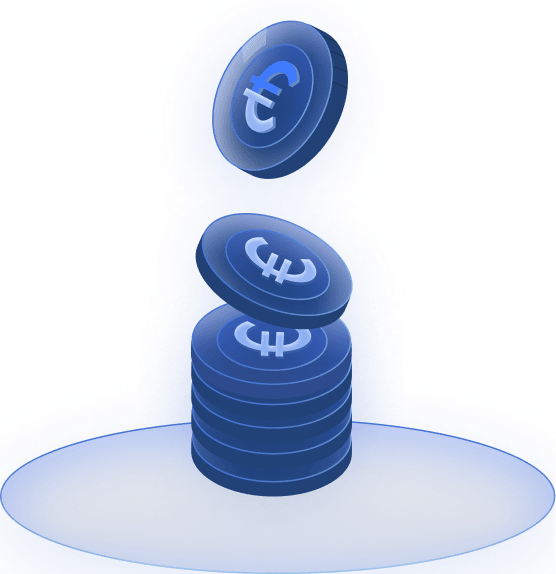Subnet Slots connect
to build the AI
Knowledge Layer

We’re already standing on the shoulder of giants
































Subnets are more than just a Node

disrupting the information industry for both AI and Consumers
B2C




B2C

Why own a dFusion AI Subnet?






Collective knowledge, collective rewards



Based on a Demand-Driven Release of Subnet Slot release schedule, we will target breakeven to be less than 9 months.
Network Size commission

Subnet and Token Utility
| Header | Header |
|---|---|
| Access | Stake $DFSN to earn a fraction of protocol revenue |
| Hold for Query Fee Discount | Hold $DFSN to get fee discount |
| Staking for Knowledge Access | Stake $DFSN to get access to the knowledge base |
| Transaction Fees | Spend $DFSN for query fees in the network and downloading knowledge sources |
| Subnet Slot Staking | Stake required $DFSN to become a validator |
| Access to Premium Features | Stake $DFSN for to get access to premium features (Nominate topics, knowledge bounties, higher rate access, white-label node tools) |
| Subnet Creation | Node operators can stake $DFSN to create a subnet with knowledge from mainnet with own particular ruleset |
| Protocol Governance | Stake $DFSN for knowledge votes, protocol decisions, community incentives |
| Buyback and Burn Program | Some of profits generated will be allocated to buyback $DFSN from the market and burnt to reduce supply |
FAQ
What is a Subnet Slot, and how does ownership work?
A Subnet Slot is a unique access point into the dFusion protocol that allows the holder to define, manage, and earn from a specific data rubric. As a slot owner, you can:
• Configure data rubrics (e.g., domain-specific filters or use cases)
• Stake DFSN to boost visibility and influence
• Collect access fees, protocol rewards, and community bounties
Ownership is maintained via an NFT key that unlocks slot control and tracks all associated earnings and contributions.
Will I receive any proof of ownership for my Subnet Slot?
Yes. Upon purchase, you will receive a blockchain-native NFT key representing your Subnet Slot. This NFT serves as your proof of ownership and can be verified on-chain.
Is the NFT Key transferable?
Yes, it will be transferable after 12 months due to compliance and regulatory constraints. Before then, the key remains bound to the purchasing wallet but still provides all network benefits.
Can I choose my own GPU provider for the subnet slot?
Yes. If you participate in GPU-based mining tasks, you can either use your own hardware or connect through approved decentralized GPU providers (e.g., Aethir, io.net).
What are the Computing Requirements?
Operating a subnet slot comes with flexibility for three functionalities: Running a Subnet slot (a data rubric), Miner tasks (GPU) and Validator (CPU)
Subnet Slot
Basically need a compatible browser to run the upcoming Subnet slot portal to configure a rubric for data that the subnet will incentivize to collect.
Rewards are dynamically distributed by the protocol based on your contribution.
Miner Tasks (GPU requirements)
Performs data processing and AI-related tasks.
Recommended GPU 16-24 GB
Validator Task (CPU requirements)
Coordinates validation tasks across the protocol
Verifies on-chain task integrity and consensus with other nodes
Recommended:
- CPU: 2-core Intel M5 or equivalent
- RAM: 8 GB
- Minimal storage and bandwidth requirements
What happens if I don't use my subnet slot?
If unused, your Subnet Slot remains inactive and won’t earn any rewards. However, the NFT key still grants future access and can be activated or delegated at a later time. Inactive slots may be deprioritized for certain airdrops or community incentives.
How will subnet slots be released?
Subnet slots will be released in controlled phases. Each batch will be allocated based on whitelist status, contribution score, and available demand. Priority will be given to users who have already engaged with the protocol’s data or staking ecosystem.
Who will get early access to the subnet slots?
Early access will be granted to:
• Genesis Knowledge Ingestion contributors
• Verified contributors to our Social Lens DLP
• Strategic partners and ecosystem collaborators
• Waitlisted community members who meet contribution thresholds
Whitelist will close on May 27th.
What are foundational Subnet Slots?
Foundational Subnet Slots are early, protocol-aligned slots issued prior to Mainnet that help shape the initial data rubrics, validation mechanisms, and incentive structures. Holders may receive enhanced governance rights, early product access, and priority in future network integrations.